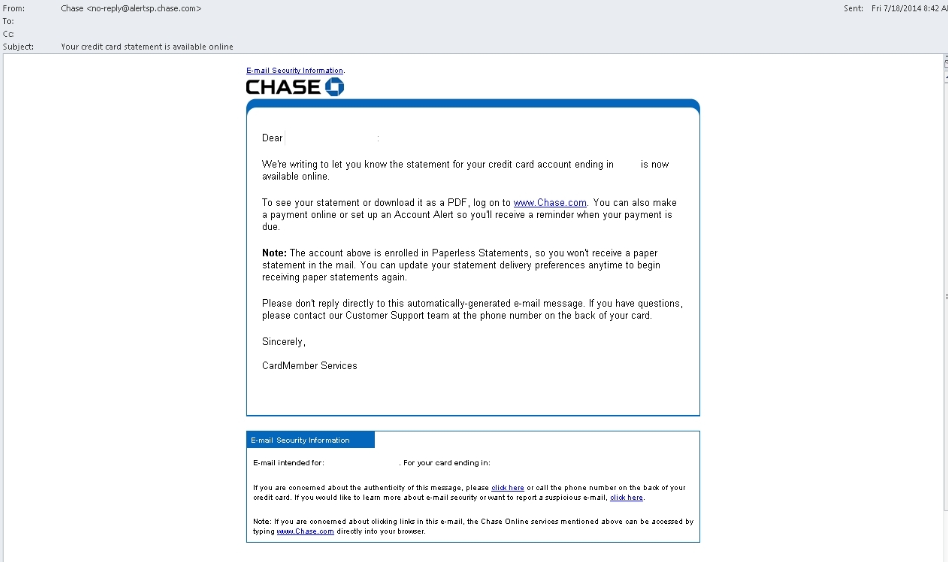About JPMorgan Chase Email Virus
JPMorgan Chase Email Virus refers to phishing emails sent by cyber crooks pretending to be from JPMorgan Chase, an investment banking company. Phishing emails aim to get people’s login/banking information, which they can later use to steal funds from accounts. Phishing emails have been around for many years and have been responsible for the millions of dollars lost. Despite that fact that most people can differentiate between legitimate and phishing emails, some still fall for them. There are certain signs to look out for, but some users are not aware of those signs, or simply do not notice them due to lack of attention for details. 
What does a phishing email look like?
Like we said, phishing emails are easy to differentiate if you know what to look for. One of the major signs is an abundance of grammar mistakes. The whole email would look unprofessional, despite the fact that it’s supposed to have come from a legitimate company or bank. While some phishing emails may simply be unprofessional because of low language skill, others are purposely made so. Cyber crooks know that the people who overlook the mistakes and still engage are more likely to be phished successfully, so they make mistakes purposely to filter people.
Another sign is how you are addressed in the beginning of the email. You might not have paid attention to this small but important detail in the past, but legitimate bank emails will always address you by name if you are their customer. Phishing emails would address you as Sir/Madam, Customer, User, etc. Banks, on the other hand, will never use such generic addressing as customer names are inserted into emails automatically. So if you’re being addressed by anything else besides your name, you should be cautious.
When you get an email that asks you to take some kind of action (whether it’s to press on a link and log into an account, or to open an attachment), it’s always a good idea to check the email address. While it may look completely legitimate, you still need to see if it actually belongs to the company or bank emailing you. You can use a search engine to look into it.
It should also be mentioned that no bank will ever ask for your personal information via email. Nor will they do it via phone, expect in cases where you contact the bank yourself, and they need to verify your identity. Even then they will never ask for passwords or PIN numbers.
If you’re ever in doubt about an email from the bank, don’t click on any provided links, and instead log into your online banking account manually.
What you should do with phishing emails
If you are sure you are dealing with a phishing email, your bank will want to hear of this. Banks have an email address that deals with such queries so you can forward the email to them. For no reason should you interact with phishing emails or press on any provided links. If you suspect that you may have fallen for a phishing email, contact your bank at once and inform them of the situation.